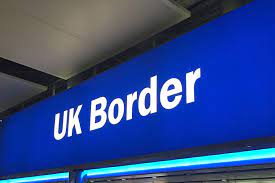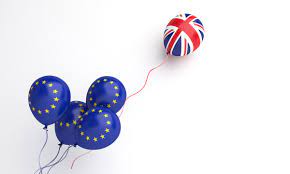The European Economic Area (EEA) is an economic arrangement between the European Union (EU) and three EFTA member nations – Norway, Iceland and Liechtenstein. This trade deal aims to extend EU’s internal market into these three EFTA states to allow free movement of goods, services, capital and people across its boundaries. Let’s check out news on European Economic Area UK.
Brexit, the UK’s decision to leave the European Economic Area (EEA), has had an immense effect on their relationship with EFTA and could affect trade deals in future negotiations. Even as an independent member, UK can access internal markets via membership in EFTA but this access will require further negotiation due to any future trade deals concluded between both entities.
This article presents an overview of the UK’s relationship with EEA and the potential ramifications on trade and the economy, while outlining key issues which need to be resolved, such as free movement of people, accessing single markets and regulatory alignment. Furthermore, future trade agreements might have an effect on its relations with EEA countries. Is UK EEA national? Which are European Economic Area countries 2025? Or, What are some of the non EEA countries? Let’s check out all of these.
What is the European Economic Area?

The European Economic Area was created as part of an agreement among EFTA countries to maintain close economic ties while still protecting their independence and sovereignty. By joining, these nations agreed to adopt most EU legislation and regulations pertaining to single market activity without participating directly in decision making processes of EU.
Current membership of EEA includes 31 nations, such as those mentioned above from EFTA as well as 28 EU member states; however, since Britain exiting from EU it no longer forms part of EEA but remains part of EFTA.
EEA’s primary goals include creating a single market that facilitates free movement of goods, services, capital and people and to ensuring all participating nations adhere to uniform regulations and standards. This creates significant benefits for businesses, consumers and citizens by expanding trade, investment and mobility while improving research & development efforts, education/culture collaboration as well as improving environmental & social standards across its member nations.
How did Brexit Impact the UK’s Relationship with the EEA?
Prior to Brexit, the United Kingdom (UK) was an official member of both the European Union (EU) and its Economic Area (EEA), enjoying full access to both of their respective internal markets for trade, investment, and free movement of people between EEA member states and themselves.
But following Britain’s vote to leave the European Union (EU), its participation in the EEA has significantly changed. While remaining part of EFTA and no longer participating as part of EU membership in the EEA as it had done previously. As such, British access to its internal market may now be subject to negotiation, and may even be affected by future trade deals.
Brexit’s effects for UK businesses operating within the EEA will be significant. Before Brexit, UK businesses were free to operate under identical legal and regulatory framework as businesses in EU member countries; now that Britain no longer participates as an EU member state in EEA trade arrangements as an EU member state, trade barriers such as tariffs, customs checks or regulatory divergence could increase significantly leading to higher costs and decreased competitiveness for UK-based EEA firms operating there.
Further, Brexit has created uncertainty for UK businesses regarding their employment and movement of workers between the UK and EEA. Prior to Brexit, UK businesses could hire employees from member states without needing visas or work permits; now with limited free movement ending, UK firms could face additional administrative and regulatory hurdles when hiring from within EEA states.
Overall, Brexit has had an immediate effect on UK-EEA relations and remains uncertain for businesses that operate there.
What are the Options for the UK’s Relationship with the EEA Moving Forward?

One option open to the UK would be negotiating a custom trade agreement with EU and EEA member states, which may involve some degree of regulatory alignment as well as provisions allowing free movement of goods, services, capital, and people across borders. But such negotiations may prove complex and time consuming without guarantee of success.
One thing to consider in terms of UK travel is new regulations. European Travel Information and Authorization System, or ETIAS UK, is the new European Union framework for European travel. It is designed to enhance the Union’s security capabilities while ensuring a smooth and enjoyable traveling experience.
Another possibility for the UK would be for it to reenter the EEA as a non-EU member, giving access to its internal market while benefitting from free movement of goods, services, capital, and people across its borders. Under such an approach, Britain would adopt most EU regulations without formal input into their development and may face political opposition within Britain itself.
Other Possibilities
One other possibility would be for the UK to join EFTA and become part of the European Free Trade Association as an EFTA member, thus maintaining access to its internal market while maintaining some independence and sovereignty due to being exempted from EU decision-making processes. Unfortunately, however, membership would require adopting all EU regulations and standards applicable within its terms.
Each option presents both advantages and drawbacks; for the UK, negotiating its own bespoke trade agreement would provide maximum flexibility but may prove the most complex and time-consuming option; joining EEA as a non-EU member could give continued access to its internal market, but would require adopting EU regulations and standards without formal input into their creation; rejoining EFTA while participating in the EEA would enable access while keeping some independence, yet still require adopting regulations set by EEA agreement in certain sectors of activity.
At its core, Britain’s decision will depend on various political, economic and strategic considerations and require careful thought about costs and benefits associated with each approach.
Conclusion

Choices will depend upon a range of political, economic, and strategic considerations; with careful evaluation of both costs and benefits being required of any strategy chosen. Although the exact outcome remains unknowable at present, one thing remains certain; after Brexit the UK must tread carefully when dealing with its European neighbors so as to maintain economic stability and secure its prosperous future.
Tips to consider
- European Economic Area UK Brexit: This phrase refers to the impact of Brexit on the United Kingdom’s (UK) relationship with the European Economic Area (EEA). Following Brexit, the UK’s participation in the EEA has changed, and its future relationship with the EEA remains uncertain.
- European Economic community UK: This phrase refers to the UK’s membership in the European Economic Community (EEC), which was the precursor to the current EEA. The UK was a member of the EEC prior to the formation of the EEA in 1994.
- European Economic Area Great Britain: This phrase refers to the UK’s participation in the European Economic Area (EEA) as a member of the European Union (EU) prior to Brexit. Following Brexit, the UK is no longer a member of the EEA as a member of the EU.
- As mentioned above, ETIAS is going to be necessary in order to visit UK. The system will be launched in 2025. Completing the ETIAS application will take less than 15 minutes, and you’ll get the feedback within hours after submission. If authorized, you’ll be able to visit all the EU/Schengen Area countries (except Ireland) for three years in compliance with the Schengen 90/180-day rule.
- European Economic Area (EEA) UK: This phrase refers to the UK’s participation in the European Economic Area (EEA), which is a trade agreement between the EU and three European Free Trade Association (EFTA) member countries. Following Brexit, the UK is no longer a member of the EEA as a member of the EU, but remains a member of EFTA.
Additional Tips
- Does European Economic Area include UK: This phrase is a question about whether the UK is included in the European Economic Area UK (EEA). Prior to Brexit, the UK was included in the EEA as a member of the EU, but following Brexit, the UK’s participation in the EEA has changed.
- UK/European Economic Area national: This phrase refers to individuals who hold nationality in the UK or another country that is a member of the European Economic Area (EEA). Under the EEA agreement, nationals of EEA member countries can move and work freely between member countries.
- Is UK within European Economic Area: This phrase is a question about whether the UK is currently a member of the European Economic Area (EEA). Following Brexit, the UK is no longer a member of the EEA as a member of the EU, but its future relationship with the EEA remains uncertain.
